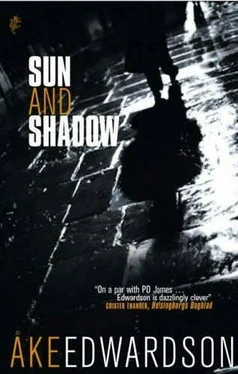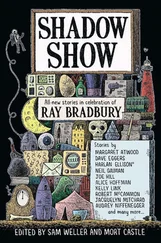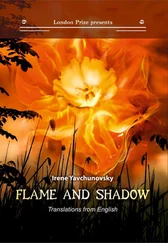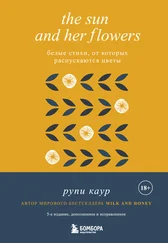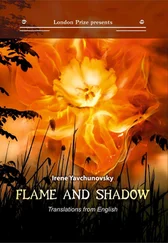“For another month.”
“Can you recommend another hotel near here?”
Winter had seen the hotel next door, but hadn’t been tempted. He was tired and hot and sweaty and miserable. He wanted a nice room and a shower and a glass of whisky and a little time to think things over.
“No,” the man said.
“A smaller hotel, perhaps. A more modest establishment.”
“No idea,” the man said, turning away. He has every right, Winter thought, It’s not his fault. I could have been more polite.
“Do you have a town guide that lists the hotels here?”
“What am I going to do with that room?” the man said, avoiding the question. He eyed Winter up and down like a hostile barrister. “I’m stuck now with an empty room.”
“Board it up,” Winter said, and marched out, trailing his case behind him.
He was lucky. When he’d driven into town earlier that day, he’d noticed a sign attached to a wall. It couldn’t be more than a hundred yards away.
He drove back a short stretch of the Avenida de Severo Ochoa and found the sign on the corner of a little side street that was for pedestrians only. He parked and walked down the Calle Luna, which was filled with afternoon shadow. About a half block along, on the right, was the Hostal La Luna, behind a glass door at the back of its own patio. Winter could see that each room had a little balcony.
There had been a last-minute cancellation, and he took a look at the room, which was very Spanish and quiet and clean, with a refrigerator and a bathroom.
He had a shower, then drank his whisky naked in the semidarkness. The elderly couple who ran the establishment were chatting quietly down on the walled patio. Marble floor and whitewashed walls.
They couldn’t speak English, not a single word, but the man had assessed Winter’s state and served him a chilled San Miguel on the table in the shade of a parasol, even before Winter had checked in for an indefinite stay.
The whisky circled around his mouth and slid into his brain. His head cleared somewhat. The room had an unfamiliar smell to it, as if it had been scrubbed with sea salt and southern spices. The twin beds were of timeless Latin design, medieval in style. Between them was an image of the Madonna, praying for him and his father. That was what occurred to him when he first saw the picture in his simple room. It was the only item of decoration.
This is the way to live.
He reached for his mobile. It was nearly seven and the sun was much weaker now. The door to the patio was ajar, and the wooden venetian blinds were half up in the glassless window opening, protected by a black wrought-iron grille.
“Angela here.”
“It’s Erik.”
“Hi! Where are you?”
“In my room. But not the hotel whose number you have.”
“So you moved,” and he knew she was smiling.
“Of course.”
“How’s your father?”
“They’ve moved him out of intensive care. Is that a good sign?”
“I suppose it must be.”
“Suppose? You’re the doctor.” He hoped he didn’t sound as if he were complaining.
“I don’t have access to his chart, Erik.” She paused. “Did you speak to him?”
“Yes.”
‘And?“
“He seems pretty… well, strong.”
“That sounds encouraging.”
“Yes.”
“What was it like, seeing him again?”
“As if we’d been chatting only last week.”
“Sure?”
“Depends what you mean. We spoke about safe subjects.”
“Everything takes time. He has to get better first.”
“Hmm.”
“Are you tired?”
“Not so tired that I can’t indulge in a glass of duty-free whisky. What about you?”
“We’re fine.”
He took her “we” as a greeting from the new family: Angela and her ever-enlarging stomach.
“Take it easy at work.”
“I always do. The mergers have resulted in much better working conditions, as you know.”
“I know.”
“You are a genius.”
“Stop it, Angela. Give your stomach a hug from me instead.”
“What are you doing tonight?”
“I’ll find somewhere for a bite to eat, then drive back to the hospital.”
“With whisky in your blood?”
“It stays in my brain. And, anyway, this is a different country.”
He could see the lights of ships plying the jet-black sea. The heat wafted into the car as he drove to the hospital. The eastern suburbs of Marbella were quieter now, with fewer cars in the streets. The streetlights, too far apart, helped to soften the darkness.
Winter had eaten a seafood meal in a modest bar near Hostal La Luna. Five men almost hidden by a cloud of smoke in front of a television set in the corner had been shouting and making obscene gestures at the footballers. Football spectators were the same the whole world over.
His father was awake again. His mother was on the chair, which she had moved closer to the bed.
“I’m going down to the cafeteria for a coffee,” she said when Winter arrived. “Can I get you anything?”
“Nothing for me, thank you.”
“You can bring me a Tanqueray and tonic,” his father said.
His mother smiled, and left. Winter sat down on the chair.
“I can hear that you’re fighting fit,” he said.
“It’s T and T time now,” his father said, who was lying with his head turned toward the window. ‘A little something cold and uplifting before dinner.“
“Isn’t it a bit late?” Winter said, pointing at his watch, which said nine o‘clock.
His father started coughing, and Winter waited. There was a clanking noise as a trolley passed by in the corridor. A woman’s voice asking something in Spanish, and a reply from a man. A snatch of guitar music. His father coughed again.
“We’ve adapted to Spanish customs.” He cleared his throat tentatively, as if to ease the pain of talking. “Do you see the outline of that mountaintop over there?”
“Yes.”
“It’s the Sierra Blanca. The White Mountain. A lovely name, don’t you think? I can see the same peak from our house. Funny, eh?”
“I don’t know about that. The mountain dominates the whole area, you could say.”
His father seemed to be pondering what he’d just said. He looked at his son. “I could have landed in a different room. Facing the other way. There’s a meaning behind this.”
“What, exactly?”
“That I’m here, in this room. That I can see the mountain peak. The same damn peak. It’s as if I were meant to see it from here too. This is my new home. I’ve moved into here now, and I’m never going to move out.”
“Of course you will.”
“Alive, Erik. I mean move out alive.”
“You seem better already. Keep going on as you are now.”
“I’m serious, Erik.”
“What does the doctor say?”
“Alcorta? He makes typical Spanish gestures that could mean anything at all.”
“Isn’t that what all doctors do?”
“Not like they do in Spain. Does Angela do it? How is she, by the way?”
“She’s fine.”
“And you’re going to be a father, Erik. Good Lord! I hope he gives me the strength to hang on long enough to see the miracle.”
“You’ll soon be back at home. Then you can study the mountain peak from the other side again.”

Morelius spent the first two hours or so of his evening shift working at the front desk. An officer who used to work on the beat would soon take over, hold the fort.
He was one of the worn-out, older officers who had been given desk jobs as a result of the latest reorganization. They’d done their duty and now just concentrated on keeping their noses clean. Lots of officers here had lost their drive like that. But this old officer was a very bitter man. Some people were born to take a top job, but those who reached retirement age and still hadn’t got one became bitter.
Читать дальше
